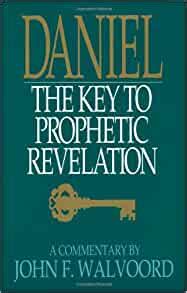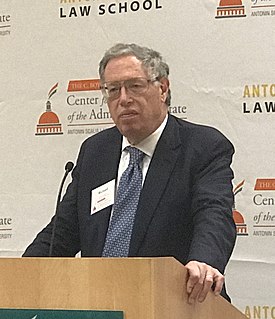A Quote by Darrell Bock
The Bible is not a book like any other. It makes a claim that God spoke and speaks through its message. It argues that as his creatures, we are accountable to him for what he has revealed. The trustworthiness of Scripture points to its authority as well. Scripture is far more than a history book, as good and trustworthy as that history is. It is a book that calls us to examine our lives and relationship to God. Beyond the fascinating history, it contains vital and life-transforming truths about God and us.
Quote Topics
About
Accountable
Any
Authority
Beyond
Bible
Book
Calls
Claim
Contains
Creatures
Examine
Far
Fascinating
God
Good
Him
His
History
Life
Like
Lives
Makes
Message
More
Other
Our
Our Lives
Points
Relationship
Revealed
Scripture
Speaks
Spoke
Story Book
Than
Through
Transforming
Trustworthiness
Trustworthy
Truths
Us
Vital
Well
Related Quotes
[T]he scripture worshippers put the writings ahead of God. Instead of interpreting God's actions in nature, for example, they interpret nature in the light of the Scripture. Nature says the rock is billions of years old, but the book says different, so even though men wrote the book, and God made the rock and God gave us minds that have found ways to tell how old it is, we still choose to believe the Scripture.
There are two gods. The god our teachers teach us about, and the God who teaches us. The god about whom people usually talk, and the God who talks to us. The god we learn to fear, and the God who speaks to us of mercy. The god who is somewhere up on high, and the God who is here in our daily lives. The god who demands punishment, and the God who forgives us our trespasses. The god who threatens us with the torments of Hell, and the God who shows us the true path.
There are two gods. A god who casts us off because of our sins, and a God who calls to us with His love.
When Christians speak of the authority of Scripture, because Christians believe that this word, even though it's mediated through many different human authors, nevertheless is God breathed and is revealed by God and is utterly reliable and all that it says, with all of its different literary genres, it's trustworthy and without mistake or distortion. It is trustworthy and therefore, because it is from God it has God's authority.
In marriage we have a duty to God, our spuses, the world, and future generations. But we are sinners. A husband and wife need to acknowledge that when the Bible speaks of fools, it is not just speaking about other people, but about them as well. Even the wisest among us has moments of folly. So God gives us spouses to serve as wise friends by praying with and for us, attending church with us, speaking truth, and providing Scripture along with good books and online classes, lectures, and sermons to nourish fruitfulness in our lives.
We are to believe and follow Christ in all things, including his words about Scripture. And this means that Scripture is to be for us what it was to him: the unique, authoritative, and inerrant Word of God, and not merely a human testimony to Christ, however carefully guided and preserved by God. If the Bible is less than this to us, we are not fully Christ's disciples.
It is scripture alone, not conservative Evangelical tradition or any other human authority, that must function as the normative authority for the definition of what we should believe. The authority of the scripture means that all the words in scripture are God's words in such a way that to disbelieve or disobey any word of scripture is to disbelieve or disobey God.
The Bible in itself is not the Word of God. The Word of God is a person. Neither does the Bible have life, power or light in itself any more than did the Jewish Torach. These attributes may be ascribed to the Bible only by virtue of its relationship to Him who is Word, Life, Power and Light. Life is not in the book, as the Pharisees supposed, but only in the Man of the book .
Chrysostom, I remember, mentions a twofold book of God: the book of the creatures, and the book of the scriptures. God, having taught us first of all by his works, did it afterwards, by his Words. We will now for a while read the former of these books; 'twill help us in reading the latter. They will admirably assist one another.
We want to fan the flames of Christians for whom inerrancy and the authority of Scripture are not mere shibboleths, but part of her life beat, part of the beating heart of what makes them tick. They revere Scripture, not because Scripture becomes an idol, but because it discloses God who is especially come after us in salvation and redemption through the person of his son, his cross, his resurrection, the full sweep of the gospel.
In my book, The Sins of Scripture, I traced the development of tribal religion, which included ideas like God's killing the Egyptians because they hated the chosen people. Then a God of love finally appears in the Book of Hosea, about the 8th century. A God of justice appears in the Book of Amos in the late 8th century or early 7th century.


































